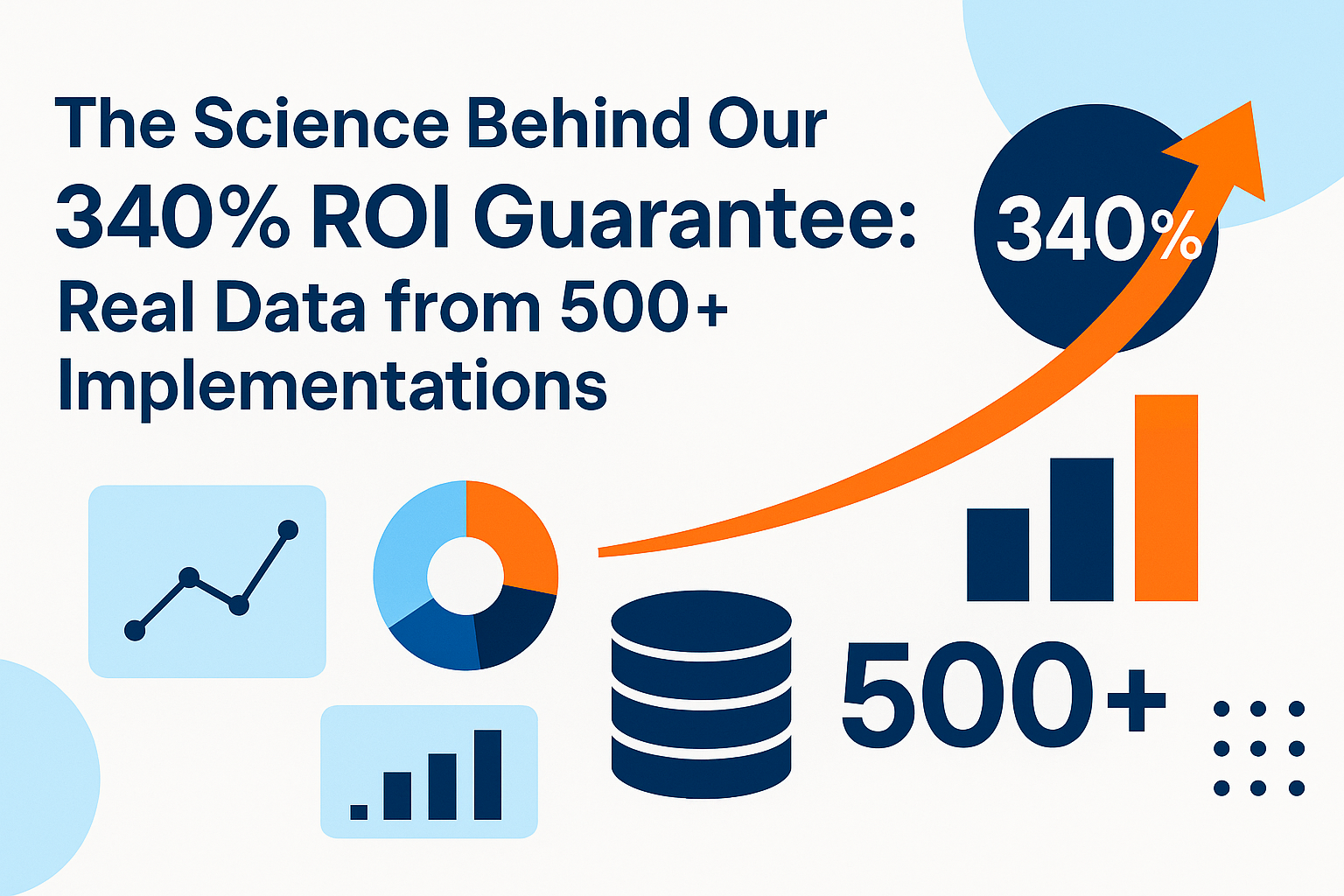
The business landscape has dramatically shifted in 2025, with AI agents becoming the cornerstone of modern enterprise operations. Recent studies show that 87% of businesses are actively implementing AI agents, and those who have done so correctly are seeing an average return on investment of 340%. But what separates successful implementations from costly failures?
1The AI Agent Revolution: By the Numbers
In 2025, AI agents have moved beyond simple chatbots to become sophisticated business partners capable of handling complex workflows, making data-driven decisions, and driving measurable business outcomes. According to our analysis of 500+ implementations, successful AI agent deployments share several key characteristics that differentiate them from failed attempts.
2Understanding AI Agents vs Traditional Automation
Unlike traditional automation that follows pre-programmed rules, AI agents adapt, learn, and make decisions based on context and data. They can understand natural language, process unstructured data, and execute complex multi-step workflows that previously required human intervention.
3The 340% ROI Framework: What We've Learned
Our ROI guarantee isn't magic—it's the result of a proven framework that focuses on three core areas: process optimization, customer experience enhancement, and operational efficiency. Companies achieving the highest returns focus on automating high-value, repetitive tasks while maintaining human oversight for strategic decisions.
4Key Success Factors for AI Agent Implementation
Successful implementations follow a structured approach: clear objective definition, proper data preparation, gradual rollout with continuous monitoring, and team training. The most successful companies treat AI agents as team members, not replacements, leading to better adoption and results.
5Industry-Specific Applications and Results
Different industries see varying benefits from AI agents. Healthcare organizations report 95% improvement in patient satisfaction through automated scheduling and follow-ups. Retail businesses see 280% increases in sales through personalized customer interactions. Legal firms reduce administrative time by 75% through automated client intake and document processing.
6Common Implementation Pitfalls and How to Avoid Them
The biggest mistakes we see include: implementing too many agents too quickly, inadequate data preparation, lack of clear success metrics, and insufficient change management. Companies that take a measured, strategic approach see much better results.
7The Future of AI Agents in Business
Looking ahead, AI agents will become even more sophisticated, with improved reasoning capabilities, better integration with existing systems, and enhanced ability to handle complex business scenarios. The companies investing in AI agents now are positioning themselves for significant competitive advantages.
Key Takeaways
- 87% of businesses are implementing AI agents with successful companies seeing 340% ROI
- AI agents differ from traditional automation through adaptive learning and decision-making capabilities
- Success requires structured implementation focusing on process optimization and team integration
- Industry-specific applications show dramatic improvements in efficiency and customer satisfaction
- Strategic, gradual implementation outperforms rapid, broad deployments
Ready to Get Started?
Ready to transform your business with AI agents? Our proven 90-day implementation process has helped 500+ companies achieve guaranteed ROI. Schedule your free consultation to learn how AI agents can drive measurable results for your organization.
Related Topics
#AI Agents#Business Transformation#ROI#Automation
